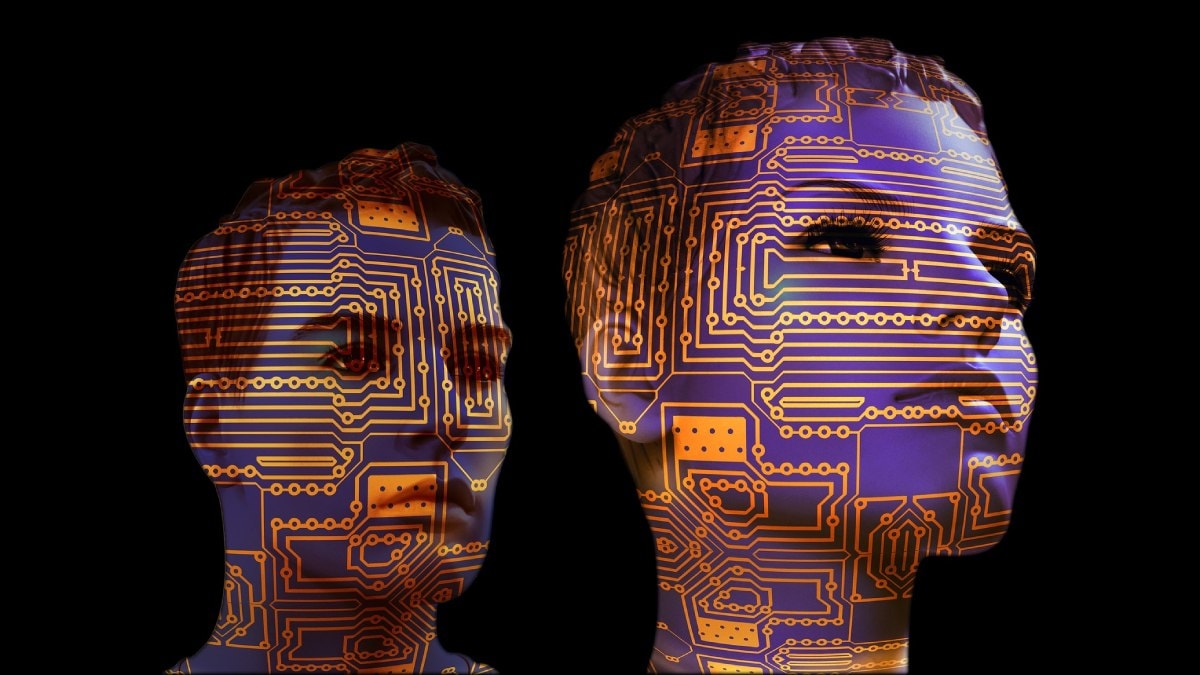
PM [1]
Rank : Helper
Status : Super Owner
#1
 title="Latest and Breaking News on Frendz4m" />
title="Latest and Breaking News on Frendz4m" />My teenage daughter was recently watching an animated movie called Wild Robot. It depicted a scenario where a robot gets lost in a forest and must adapt to the ways of the jungle and its inhabitants. My daughter described the movie as being similar to The Jungle Book, except, instead of Mowgli, it featured a robot raised in the wild. This analogy got me thinking deeply. A few wise people, like Jeff Hinton, the 'Godfather of AI' and this year's Nobel Prize winner in physics, have been warning us about existential threats from AI. But we have so far ignored these warnings. Current foundation models are filled with unseen risks, yet they are being beta-tested on billions without much consideration for safety. Imagine a vaccine that, instead of going through lab animal and human trials, is released for mass consumption instantly and ends up being catastrophic. In the mad gold rush for AI gains, we are forgetting that we don't have a version control for Earth to fall back on.
AI Deepfakes Are Real
Just a few days back, a few educated middle-class people in Bengaluru lost their life's earnings to deepfakes of "Mr. Mukesh Ambani" and "Mr. Narayana Murthy" promoting a fraudulent trading platform. The trust that these entrepreneurs have built in the public eye was misused to sell fake schemes. The internet is being flooded with countless stories of schoolboys sharing inappropriate images of peers and teachers. The psychological scarring that children will endure in their formative years is immense. As technology becomes more adept at cloning voices and faces, it will create even greater challenges for an ill-prepared society. News-driven deepfakes on X.AI probably did influence US elections, and we will see the impact only in the coming years as AI's reach widens, shaping the kind of leaders our world will get in the future, all in the name of free speech. Ironically, we don't even know what "free speech" means for AI agents.
Two Contrasting Approaches
One approach has been adopted by the US, where they are allowing the technology to evolve and reshape human society without regulation, creating a true 'Wild Wild West' on steroids. On the other side, we have the EU, which has tried to erect AI superwalls with strict regulation, choosing to be late adopters. This has led to massive frustration among AI startups and innovators, who are fleeing the EU in droves. I think both approaches are flawed. AI is not just another technology; it has the potential to fundamentally upend the status quo. It is critical that we embrace this challenge while preserving the best aspects of human society and allowing for the potential upsides that the AI revolution offers. For India, which is entering a hyper-growth phase over the next 10-15 years, missing the AI wave by following the EU model is not an option. Yet, it must avoid the broader disruptions that society is currently unprepared for.
Indian Way: AI Sandboxes
Just as the Industrial Revolution changed how we lived and worked, the AI revolution will drive a fundamental shift in how we coexist with intelligence on tap. To ensure this intelligence is not malicious or introduces change too quickly, we need to test it rigorously - not only in labs but also in real-world applications, closely monitored.
AI Cities For AI Innovation
We may need to create pro-innovation AI regulation zones in an AI city where we can safely observe AI in action, influencing 40-50% of human workflows in a legally, digitally, and physically bounded environment. Such an AI city, constantly monitored and benchmarked for AI safety, could allow us to safely build bridges to the AI revolution before unleashing it fully into society at large. The way to achieve this is through a greenfield development with infrastructure built specifically for AI, bounded by a legal and regulatory framework conducive to human and AI innovation. An innovation-driven city could, for example, provide live sandboxes for autonomous mobility (lanes for driverless taxis and autonomous logistics), autonomous charging stations for intelligent robots, next-generation AI-driven healthcare, logistics, manufacturing and education, and open, real-time data for AI innovators in city governance and financial services. It would be a place designed with future possibilities in mind-a place where we can watch a new kind of human-machine society unfold, open to innovation yet capable of triggering a limited safe mode if things go awry, supported by a digital-physical twin. Such a place could change the course of the AI revolution, allowing it to unfold safely while supporting sustainable development. It should also be a place that fosters a deep understanding of human consciousness, allowing it to blossom alongside AI.
Can we in India create this cradle of innovation not just for ourselves but for humanity as a whole? A city where, as Arthur C. Clarke wrote, "whether you are made up of silicon or carbon, both should be treated with equal respect"? AGI might not wipe out humanity, but Artificial intelligence combined with human stupidity, without the essential safety lock, could definitely lead to disastrous outcomes
[Umakant Soni is chairman of AIfoundry and co-founder of ARTPARK (AI & Robotics Technology Park)]